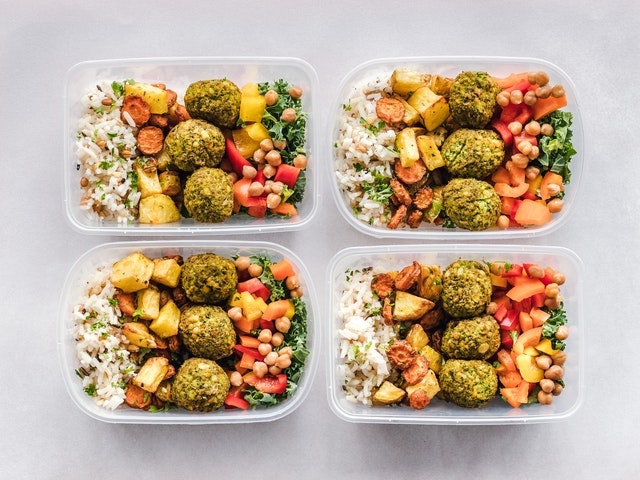Good nutrition is essential for maintaining a healthy mind and body, and it doesn’t have to be costly. Here are some professional recommendations for eating a nutritious diet on a budget.
Contrary to popular belief, eating healthy does not have to be prohibitively expensive. Researchers at the Harvard T.H. Chan School of Public Health conducted a meta-analysis of 27 existing studies in 2013 and discovered that the healthiest meals cost only $1.50 more per day than the least healthy diets.
Healthy eating does not have to be more expensive, even when we are no longer in 2013. Pre-cut fruits and veggies can fill a bowl and a stomach for less money than a lot of prepared foods.
Here’s how to save money while eating healthy on a budget.
Prepare meals at home
Cooking at home is one of the most effective methods to eat better and save money. Rather than going out to buy pre-made healthy food, gather the ingredients and prepare them at home. Creating your own healthy food basics, such as salad dressing or granola, is a nutritious and cost-effective alternative if making complete meals isn’t your thing or you don’t have the time.
Making them from scratch with fresh ingredients is an easy way not only to save money but also to eat healthier versions of your favorite convenience foods, since they won’t contain preservatives and you can control the amount of added salt and sugar. Prepare your own high-protein snacks so you can reach for them instead of the chips.
Visit your local farmers market
Fresh, in-season fruits and vegetables can be found at your local farmers market. Shopping for produce that is in season is far less expensive than purchasing produce that is not, and the best place to learn about what is in season is at a farmers market. Supporting local farmers means spending roughly half as much at the grocery store as you would otherwise.
Farmers markets are cost-effective because farmers sell their products directly to customers, bypassing shipping agents, retailers, and other middlemen. As a result, you get fresh, healthful fruits and vegetables while also supporting local farmers.
Another suggestion? Make sure you use all of your produce and don’t throw anything away. To avoid being bored with the same vegetables, become creative and preparing different dishes with them. Smoothies can be made with any fruits and vegetables that haven’t been used yet but are about to deteriorate.
Prepare meals ahead of time
After a long day, the last thing you want to do is cook. Set aside one day a week to meal planning to prevent reaching for the takeaway menu in these scenarios. It doesn’t have to be tough to prepare meals. To keep things simple, include one protein source, at least one vegetable, and a whole-grain or nutrient-rich starch in each meal. Preparing nutritious meals in bulk saves time and money while also making it simple to eat well.
This ensures you have lots of leftovers that you can freeze and reheat on nights when you don’t feel like cooking. This will certainly dissuade you from ordering takeout and eating anything unhealthy.
Buy food in bulk, and name brands should be avoided
Buy food in bulk whenever possible, especially goods with a lengthy shelf life or that can be frozen. Purchasing your favorite nutritious foods in bulk allows you to make fewer trips to the supermarket and save money. In addition, buying generic or store brand versions of healthful items like peanut butter, cereals, yogurt, and granola will save you money. Buying supermarket-brand basics can save you 15 to 30 percent on average.
Use grocery shop coupons and cash back apps to save money at the grocery store
Using grocery store coupons, cash back apps, or credit cards that offer cash back on purchases is also a good idea. Grocery gift cards are another option to save money on healthful foods.
Buy frozen products
Frozen fruits and vegetables are an inexpensive way to eat healthy. Frozen product costs around 30% less than fresh stuff. Plus, fruits and vegetables last much longer and are usually already sliced and ready to eat, saving you time on rinsing and cutting. Frozen food may be a suitable option for you if you don’t use much of the fresh produce you buy or if it spoils rapidly.
Fresh food lasts far longer than flash-frozen produce and retains the majority of its nutrients. If you see fresh fruits or veggies on sale, buy in bulk and freeze some of it yourself to extend the life of the produce. Keep in mind that this does not apply to canned goods, which have increased fat, salt, and sugar levels.
Reduce your meat and dairy consumption
Explore plant-based or vegan options. Try substituting at least one or two days per week to incorporate plant-based sources of protein into your diet—it will save you money and keep your diet healthier, too.










